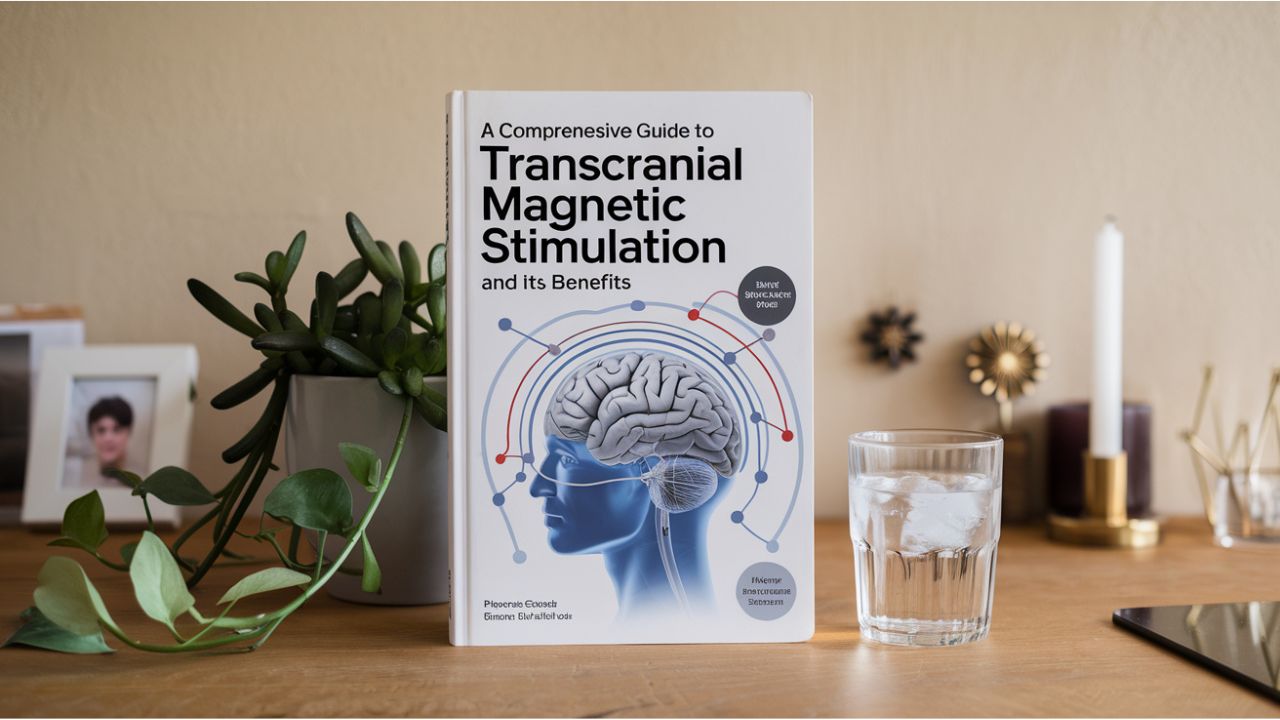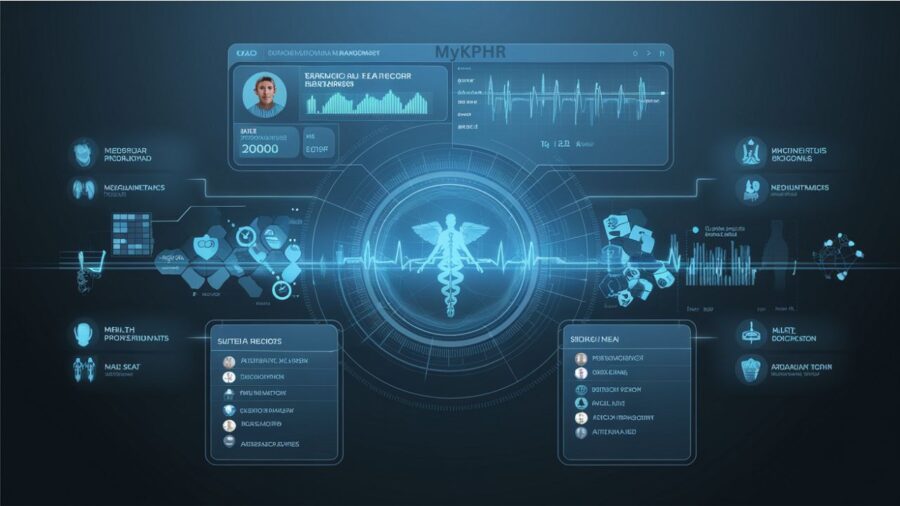Transcranial Magnetic Stimulation (TMS) is a revolutionary treatment option gaining popularity for its effectiveness in managing depression and other mental health conditions. When provided under the care of an Advanced Practice Nurse (APN), TMS treatment becomes more accessible and tailored to individual needs. This article explores the intricacies of TMS treatment APN, covering everything from how TMS works and its benefits to what patients can expect during and after treatment.
Understanding TMS Treatment
Transcranial Magnetic Stimulation (TMS) is a non-invasive procedure that uses magnetic fields to stimulate nerve cells in the brain. Primarily used to treat depression, TMS is often recommended for patients who have not found relief from traditional treatments, such as medications or therapy. Unlike medications, TMS has few side effects, making it a safe and viable alternative for many patients. Advanced Practice Nurses (APNs) play an essential role in delivering TMS therapy, ensuring it’s administered with expert care and personalized attention.
Why Choose TMS Treatment with an APN?
APNs bring a specialized level of care to TMS treatment. As licensed, advanced-trained nurses, they possess both the knowledge and clinical expertise needed to administer TMS therapy effectively. APNs focus on patient-centered care, meaning they work closely with patients to monitor their responses, adjust treatment protocols, and provide the supportive care that is essential for mental health recovery. Patients choosing TMS treatment APN often benefit from this hands-on approach, experiencing greater comfort and confidence throughout their treatment journey.
How Does TMS Treatment Work?
TMS treatment operates by sending magnetic pulses to specific brain areas linked to mood regulation. These pulses stimulate brain activity in regions that may be underactive in people with depression. By increasing activity in these areas, TMS helps to relieve depressive symptoms. Here’s a closer look at the steps involved in TMS treatment:
- Initial Assessment: Before starting TMS, an APN conducts a thorough assessment to determine if TMS is the right approach for the patient.
- Mapping the Brain: During the first session, the APN maps the patient’s brain to locate the treatment area.
- Stimulation Sessions: The patient undergoes multiple TMS sessions over several weeks, with each session lasting about 20-40 minutes.
- Monitoring Progress: Throughout the treatment period, the APN monitors symptoms and makes adjustments as necessary.
Benefits of TMS Treatment APN
Patients who undergo TMS treatment APN care benefit in several ways, including:
- Non-Invasive Procedure: TMS does not require surgery, anesthesia, or any invasive intervention.
- Minimal Side Effects: Unlike medication, TMS usually has very few side effects, with mild scalp discomfort being the most common.
- High Success Rate: Many patients report significant improvement in mood and reduction in depressive symptoms.
- APN Support and Supervision: With an APN, patients have a dedicated healthcare provider who can address questions, adjust treatment, and provide personalized support.
What to Expect During TMS Treatment with an APN
Patients undergoing TMS treatment APN should know what to expect to ensure a smooth, stress-free experience. Here’s a typical breakdown of the treatment process:
- Consultation and Planning: During the initial consultation, the APN will discuss the patient’s mental health history, treatment goals, and how TMS might benefit them.
- Preparation for Treatment: The patient will sit comfortably while the APN places the TMS device near the scalp. No sedatives are needed, as the procedure is non-invasive and painless.
- Treatment Sessions: Each session takes about 20-40 minutes. During this time, magnetic pulses are directed at specific brain regions.
- Ongoing Monitoring: APNs actively monitor the patient’s response to treatment, making any necessary adjustments.
- Post-Treatment Review: After completing the course, the APN reviews progress, discusses any remaining symptoms, and suggests next steps.
Effectiveness of TMS Treatment APN
Numerous studies demonstrate the effectiveness of TMS for treating depression, especially in patients who have not responded well to traditional treatments. Success rates vary, but many patients report noticeable improvements in mood and quality of life after several weeks of treatment. The role of the APN in providing TMS is critical, as these healthcare providers can tailor the treatment, make real-time adjustments, and offer emotional support to enhance effectiveness.
Is TMS Treatment Safe?
TMS is considered one of the safest treatments for depression, with a low risk of side effects. The most commonly reported side effect is a mild headache or scalp discomfort, which generally subsides after a few sessions. TMS treatment has also been approved by health authorities in several countries, including the U.S. Food and Drug Administration (FDA), due to its high safety standards. TMS treatment APN sessions add an additional layer of safety, as APNs monitor patient reactions closely and provide medical support if needed.
TMS Treatment vs. Traditional Depression Therapies
For individuals with depression, traditional therapies like medication and psychotherapy are common first-line treatments. However, these options don’t work for everyone. Here’s a quick comparison between TMS treatment and traditional therapies:
- Medication: While effective for many, medications often have side effects and may take weeks to show results. TMS offers a medication-free approach, providing symptom relief without the risk of chemical side effects.
- Therapy: Talk therapy is beneficial but may not provide complete relief for individuals with severe depression. TMS can complement therapy, helping patients achieve better outcomes.
- Combination Approaches: Many healthcare providers, including APNs, recommend TMS as part of a broader treatment plan that may include therapy and lifestyle changes for optimal results.
Is TMS Treatment Right for You?
TMS treatment is generally recommended for individuals who have not responded well to other depression treatments. However, it may not be suitable for everyone. Patients with a history of seizures, metal implants, or certain medical conditions should consult their healthcare provider before starting TMS. An APN can perform an initial evaluation to determine if TMS is a safe and effective option based on individual health needs.
How to Start TMS Treatment APN
If you are interested in starting TMS treatment APN sessions, here are the typical steps:
- Consult a Healthcare Provider: Speak with a doctor or mental health professional to discuss TMS as a treatment option.
- Get a Referral: In some cases, you may need a referral for TMS therapy, especially if provided through an APN.
- Schedule an Initial Consultation: The APN will perform an evaluation to determine if TMS is a suitable treatment.
- Set Treatment Goals: With your APN, define clear treatment goals and plan the number of sessions.
- Begin TMS Therapy: Start your therapy sessions with the support and guidance of your APN.
FAQs
What is TMS treatment APN?
TMS treatment APN refers to Transcranial Magnetic Stimulation provided under the care of an Advanced Practice Nurse. APNs offer expertise and personalized care, enhancing the TMS experience.
Is TMS treatment effective for depression?
Yes, TMS is highly effective, especially for patients who have not found relief from medications or talk therapy. Success rates vary, but many patients report significant improvements.
Are there side effects to TMS treatment?
TMS has few side effects, with scalp discomfort being the most common. APNs help manage any mild side effects, ensuring patient comfort.
How long is a typical TMS treatment session?
Each session lasts 20-40 minutes, with most patients receiving treatment five days a week for several weeks.
Do APNs provide TMS treatment independently?
Yes, many APNs are licensed and trained to administer TMS treatment, offering a patient-centered approach that ensures individualized care.
Can TMS replace medication and therapy?
TMS can be used as a stand-alone treatment or alongside medications and therapy. Many patients find that TMS complements other treatments, providing enhanced relief from symptoms.
Conclusion
TMS treatment APN is a promising option for individuals struggling with depression and other mental health conditions. Administered under the skilled supervision of an Advanced Practice Nurse, TMS provides a safe, non-invasive, and effective alternative to traditional treatments. With benefits that range from minimal side effects to high success rates, TMS treatment has the potential to transform mental health care. Whether used as a standalone therapy or as part of a broader treatment plan, TMS offers hope for those seeking relief from persistent mental health challenges.











